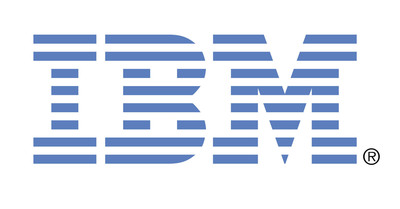TMCnet News
IBM Announces Two New Partnerships with Melanoma Institute Australia and MoleMap to Advance Research in Melanoma IdentificationSYDNEY, June 27, 2016 /PRNewswire/ -- IBM (NYSE: IBM) Research in Australia has announced plans to undertake research with Melanoma Institute Australia to help further advance the identification of melanoma using cognitive technology. This planned research builds on IBM's existing research agreement with MoleMap, which uses advanced visual analytics to analyze more than 40,000 data sets including images and text. IBM Research plans to analyze dermatological images of skin lesions to help identify specific clinical patterns in the early stages of melanoma1. The Australian research aims to help reduce unnecessary biopsies and help clinicians more accurately understand skin cancer, which could help to improve patient care.  Despite public awareness programs and efforts to address its prevalence, Australia has one of the highest rates of skin cancer, including melanoma, in the world. Current statistics indicate that two in three Australians will be diagnosed with skin cancer before the age of 70, yet 95 to 99 percent of all skin cancers are preventable2. Early diagnosis of skin cancer is critical for survival rates, notably for melanoma which is considered among the most life threatening. According to our national cancer statistics someone dies from melanoma every six hours2. Using advanced visual analytics IBM Research will conduct retrospective analysis on de-identified data, which will include access to more than one million images from 9,000 Australian and New Zealand patients, as well as text based clinical notes in an effort to improve the accuracy of its machine learning algorithms. IBM's cognitive technology would aim to learn to understand skin cancers such as melanoma, basal cell carcinoma and squamous cell carcinoma using lower resolution clinical images, with a goal of similar accuracy to what can be achieved with dermoscopy images. Melanoma Institute Australia operates the world's largest melanoma research and treatment facility, and controls the largest melanoma research database in the world. Professor Graham Mann, Research Director at Melanoma Institute Australia explained, "Research that enables the earlier detection of melanoma is likely to save more lives in the future. The five-year survival rate for melanoma is only 64 percent once the disease reaches the lymph nodes. However this rises to 95 percent if detected before thn. Diagnosing melanoma with the naked eye is only about 60 percent accurate, but dermoscopy can lift that to over 80 percent. Research using automated analysis of images could provide the next gain in accuracy, especially where dermoscopy is hard to access." The planned research with Melanoma Institute Australia follows on from an initial joint IBM MoleMap investigation in 2015 whereby IBM Research performed retrospective analysis of complex and versatile data sets of 40,000 images, dermatology opinion and diagnosis on each image, spanning three types of skin cancer and twelve benign disease groups. This formative testing on historical data suggested an accurate detection of melanoma from 12 various benign skin diseases of 91 percent on dermoscopy images, and 83 percent on clinical photography images. "Melanomas are often missed in routine skin checks, as doctors don't always have the technology or skills to recognize them, particularly in the early stages. Our aim at MoleMap is to detect melanoma earlier and more accurately, so partnering with IBM and using its cognitive capabilities to help drive this forward made perfect sense for us. We're looking forward to seeing what we can achieve together to help fight this deadly disease," said Adrian Bowling, CEO of MoleMap. Since 1997 MoleMap has seen more than 200,000 patients and assessed more than 6 million lesions through 50 clinics across New Zealand, Australia and the United States. The planned research aims to scale and test this performance. Melanoma Institute Australia and MoleMap will help IBM Research to further train and validate the algorithms to help improve the understanding and identification of early stages of melanoma, which could help to improve patient care. Dr. Joanna Batstone, Vice President and Lab Director, IBM Research – Australia said, "Cognitive computing has the ability to process vast amounts of complex data including images and text very quickly, something that isn't possible by current manual methods. Another major benefit of the self-learning technology is that it improves as more and more data is fed into it. This initiative could inform future research and, potentially, the development of offerings that could have enormous implications for both the Australian public and the health system." The news further complements IBM's existing research into skin cancer image analysis with the world's oldest and largest private cancer center, Memorial Sloan Kettering Cancer Center in the United States. About IBM Research – Australia: About Melanoma Institute Australia About MoleMap 1 All statements regarding IBM's future direction and intent are subject to change or withdrawal without notice, and represents goals and objections only. Contact: Sandra McMullan Logo - http://photos.prnewswire.com/prnh/20090416/IBMLOGO To view the original version on PR Newswire, visit:http://www.prnewswire.com/news-releases/ibm-announces-two-new-partnerships-with-melanoma-institute-australia-and-molemap-to-advance-research-in-melanoma-identification-300290681.html SOURCE IBM 
|
